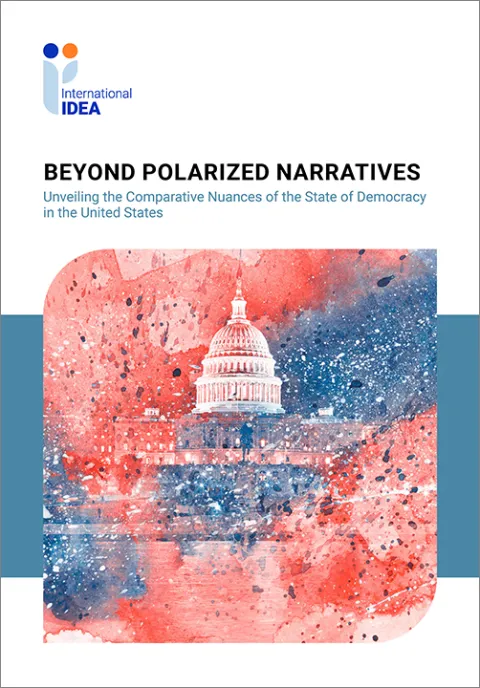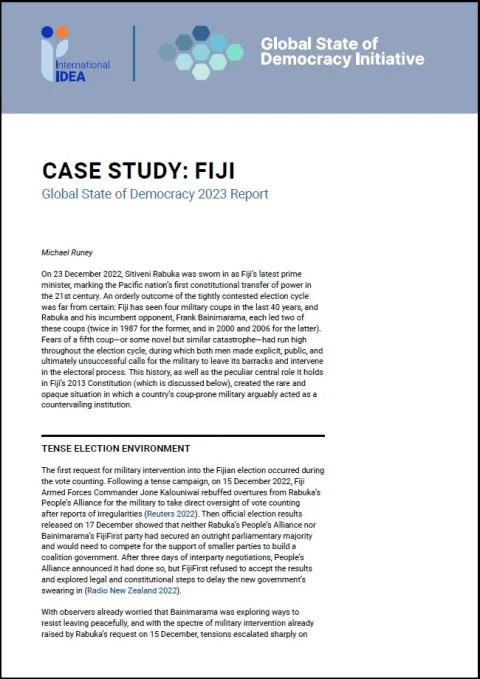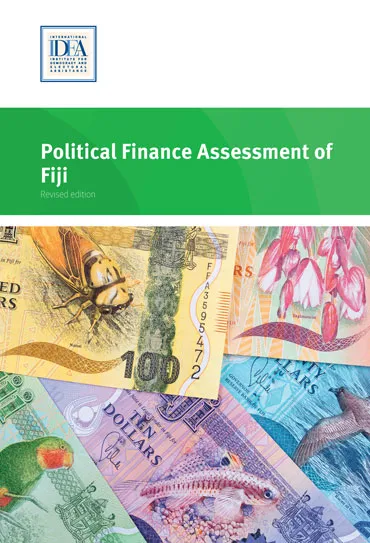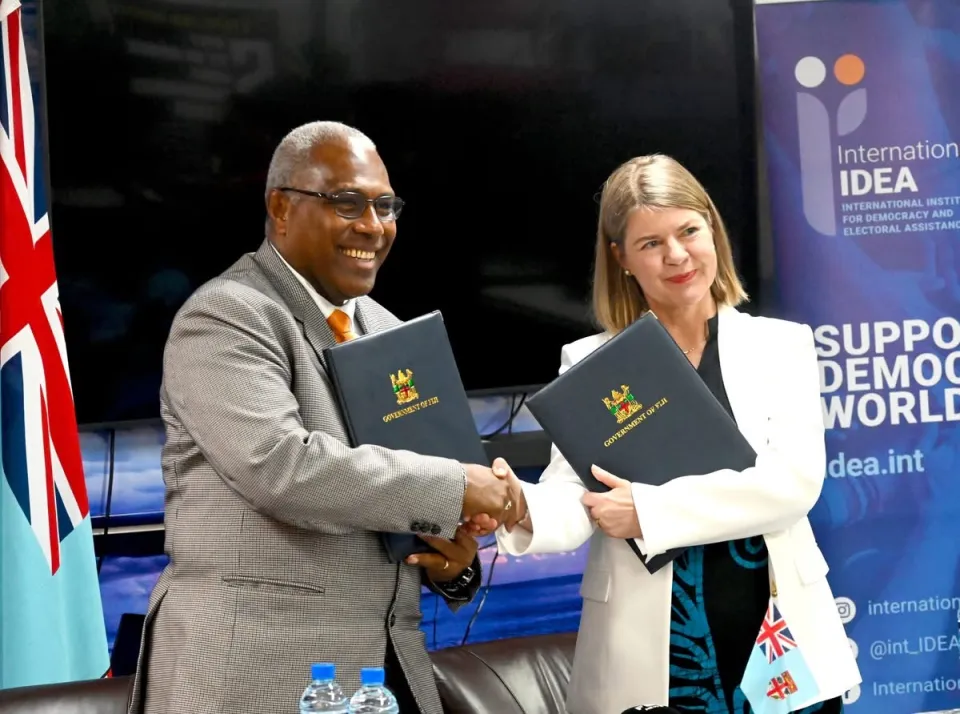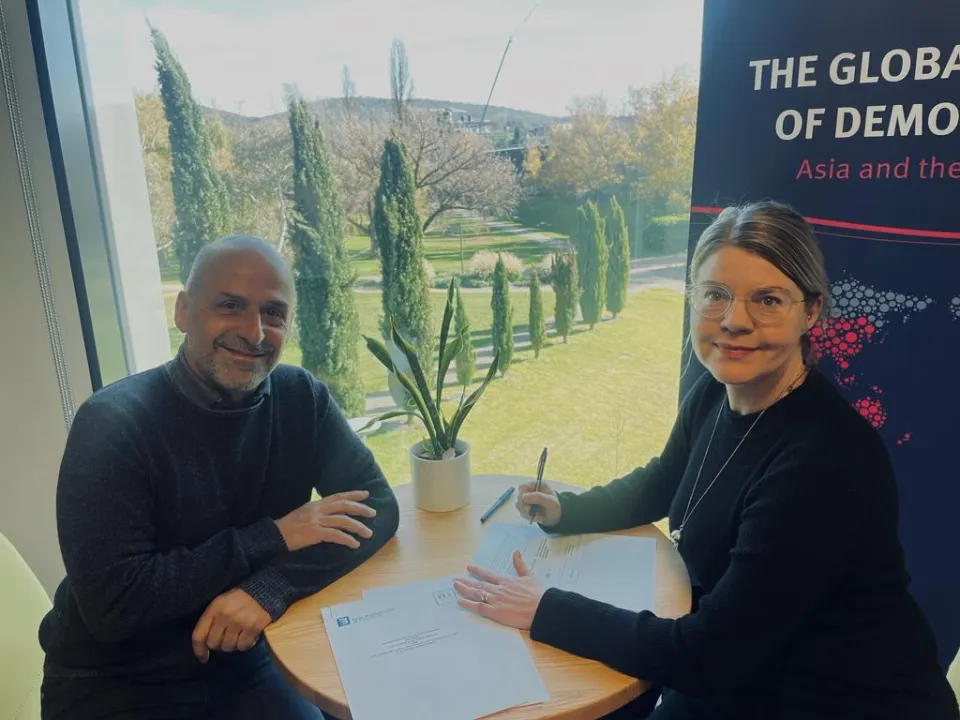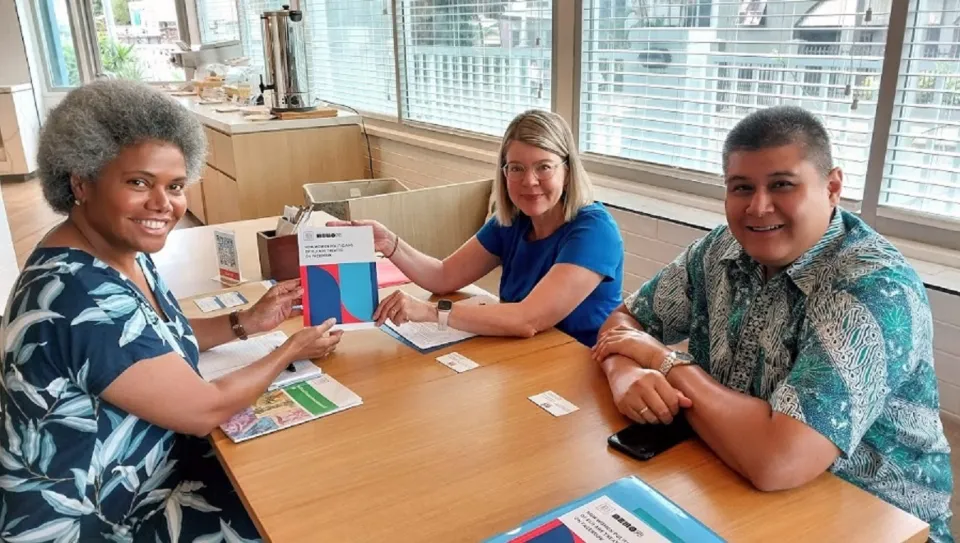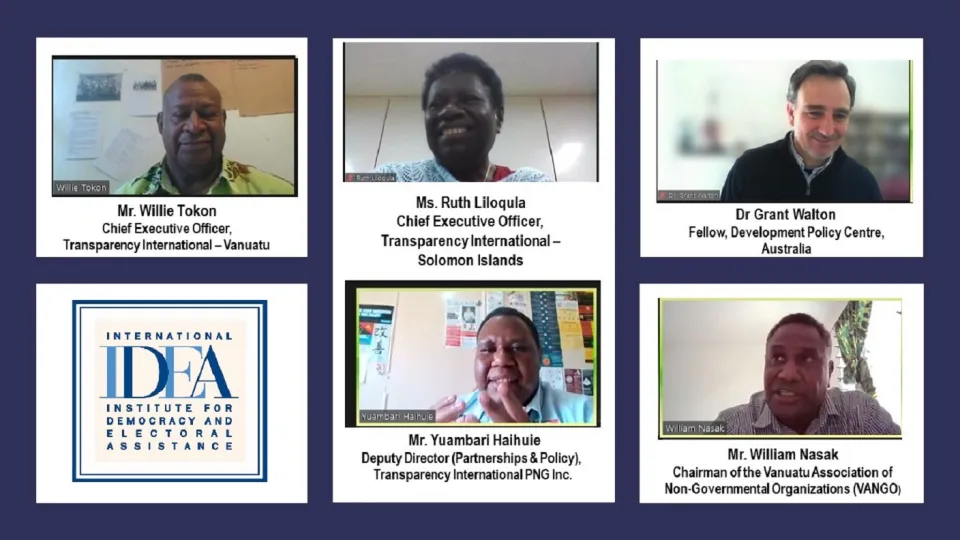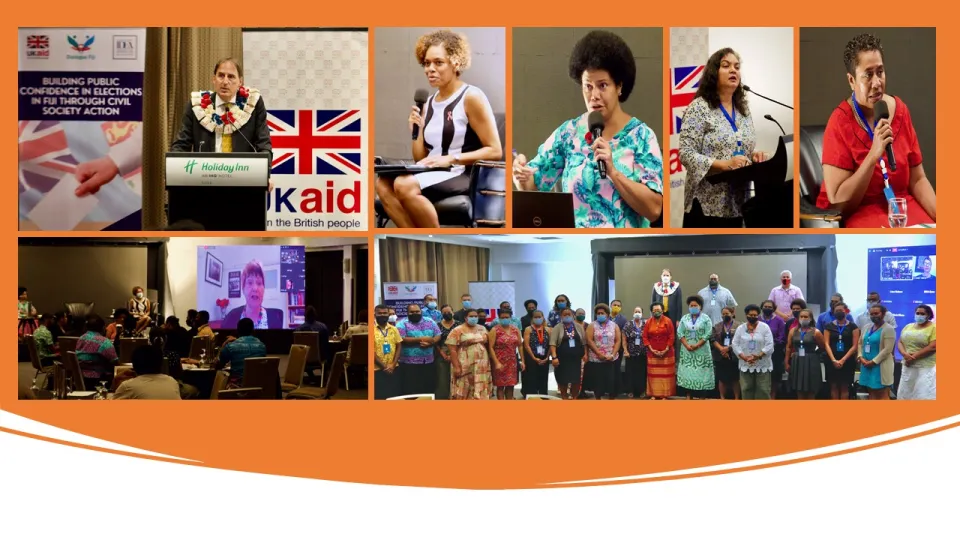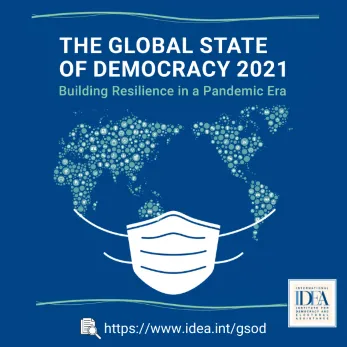Assessing the State of Democracy in the Pacific
There is clear support for democracy in the Pacific Islands region, but also reasons to be concerned about its contemporary practice. The complexity of Pacific democracy is rarely captured in global datasets. This has significant consequences for the understanding of democratic practice in the Pacific and the completeness of the global understanding of democracy.
This report combines International IDEA’s Global State of Democracy indices and data with contextual research and knowledge of the Pacific region to better understand the meaning and practice of democracy in Pacific Island
countries of Fiji, Papua New Guinea, Solomon Islands and Vanuatu over the past five years. A Pacific lens on democracy reveals complex dynamics arising from local and Indigenous representation and leadership, and its relationship with formal institutions of government, as well as the exigencies of smallness, the political marginalization of some societal and democratic experimentation and innovation.
The report concludes by identifying three strategies to enrich global conceptions of democracy with lessons from the Pacific.
Details
Contents
Acknowledgements
Foreword
Preface
Executive summary
Introduction
1. Exploring the data
2. Conceptualizing Pacific democracy
References
About the authors
About the Department of Pacific Affairs
Give us feedback
Do you have a question or feedback about this publication? Leave us your feedback, and we’ll get back to you
Send feedbackAssessing the State of Democracy in the Pacific
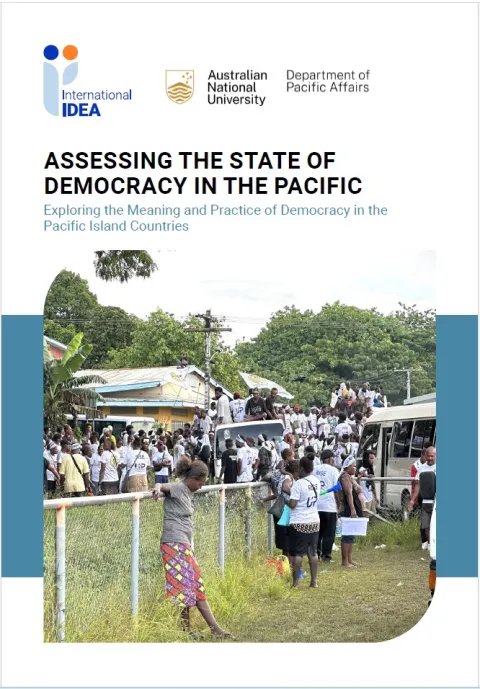
| Total views | 3031 |
|---|---|
| Downloads | 206 |
| Rating |
Give us feedback
Do you have a question or feedback about this publication? Leave us your feedback, and we’ll get back to you
Send feedback